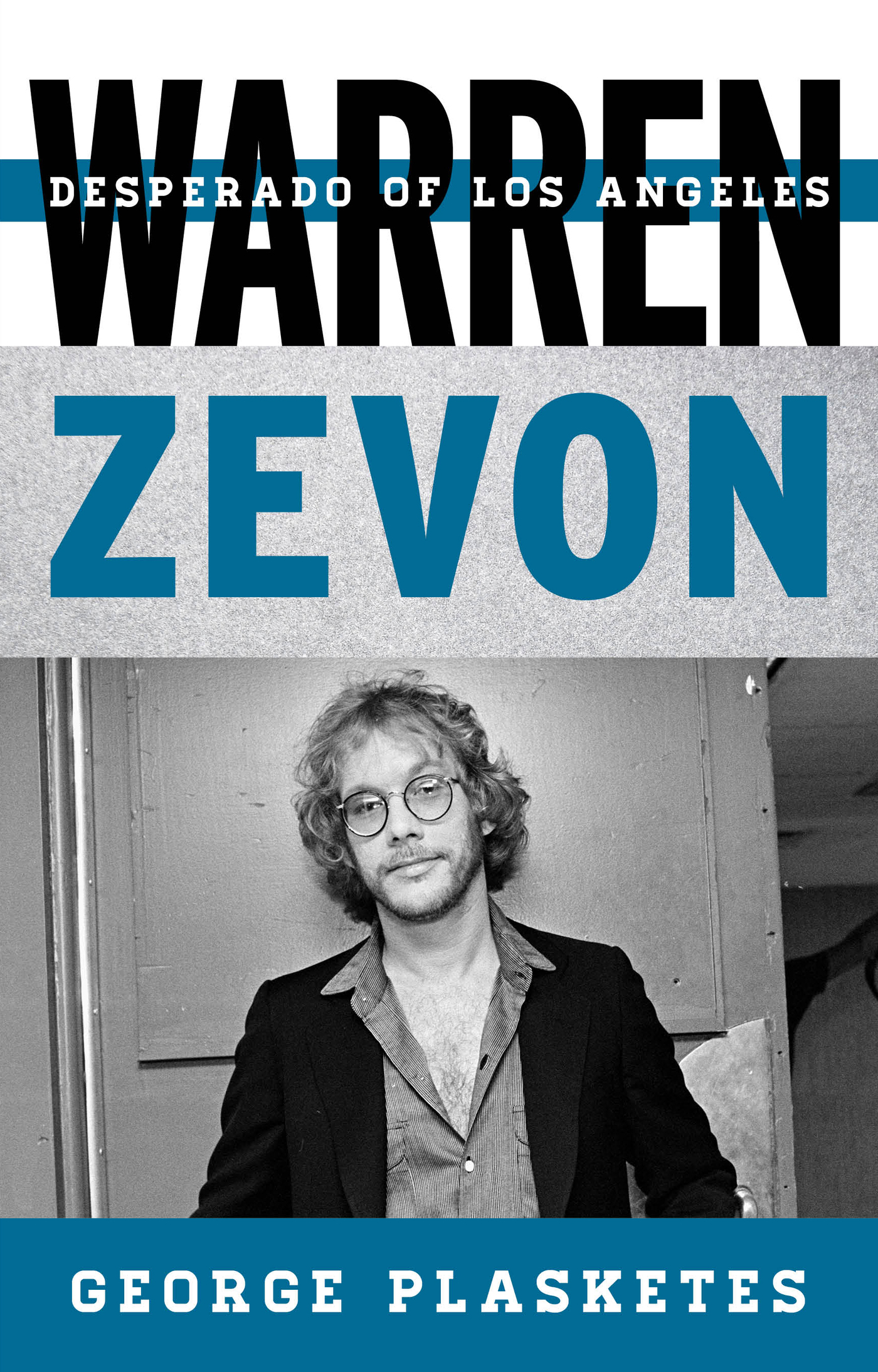Warren Zevon
Tempo
A Rowman & Littlefield Music Series on Rock, Pop, and Culture
Series Editor: Scott Calhoun
Tempo: A Rowman & Littlefield Music Series on Rock, Pop, and Culture offers titles that explore rock and popular music through the lens of social and cultural history, revealing the dynamic relationship between musicians, music, and their milieu. Like other major art forms, rock and pop music comment on their cultural, political, and even economic situation, reflecting the technological advances, psychological concerns, religious feelings, and artistic trends of their times. Contributions to the Tempo series are the ideal introduction to major pop and rock artists and genres.
Bob Dylan: American Troubadour, by Donald Brown
Bon Jovi: Americas Ultimate Band, by Margaret Olson
British Invasion: The Crosscurrents of Musical Influence, by Simon Philo
Bruce Springsteen: American Poet and Prophet, by Donald L. Deardorff II
The Clash: The Only Band That Mattered, by Sean Egan
Kris Kristofferson: Country Highwayman, by Mary G. Hurd
Patti Smith: Americas Punk Rock Rhapsodist, by Eric Wendell
Paul Simon: An American Tune, by Cornel Bonca
Ska: The Rhythm of Liberation, by Heather Augustyn
Warren Zevon: Desperado of Los Angeles, by George Plasketes
Desperado of Los Angeles
George Plasketes
ROWMAN & LITTLEFIELD
Lanham Boulder New York London
Published by Rowman & Littlefield
A wholly owned subsidiary of The Rowman & Littlefield Publishing Group, Inc.
4501 Forbes Boulevard, Suite 200, Lanham, Maryland 20706
www.rowman.com
Unit A, Whitacre Mews, 26-34 Stannary Street, London SE11 4AB
Copyright 2016 by George Plasketes
All rights reserved. No part of this book may be reproduced in any form or by any electronic or mechanical means, including information storage and retrieval systems, without written permission from the publisher, except by a reviewer who may quote passages in a review.
British Library Cataloguing in Publication Information Available
Library of Congress Cataloging-in-Publication Data
Names: Plasketes, George.
Title: Warren Zevon : desperado of Los Angeles / George Plasketes.
Description: Lanham, Maryland : Published by Rowman & Littlefield, 2016. | Series: Tempo : A Rowman & Littlefield music series on rock, pop, and culture | Includes bibliographical references and index.
Identifiers: LCCN 2015041682 (print) | LCCN 2015043652 (ebook) | ISBN 9781442234567 (cloth : alk. paper) | ISBN 9781442234574 (electronic)
Subjects: LCSH: Zevon, Warren. | Rock musiciansUnited StatesBiography.
Classification: LCC ML420.Z475 P53 2016 (print) | LCC ML420.Z475 (ebook) | DDC 782.42166092dc23 LC record available at http://lccn.loc.gov/2015041682
 TM The paper used in this publication meets the minimum requirements of American National Standard for Information Sciences Permanence of Paper for Printed Library Materials, ANSI/NISO Z39.48-1992.
TM The paper used in this publication meets the minimum requirements of American National Standard for Information Sciences Permanence of Paper for Printed Library Materials, ANSI/NISO Z39.48-1992.
Printed in the United States of America
Always, for Julie
...we will float.
Series Editors Foreword
Out in Los Angeles in the 1970s, sat Warren Zevon at his piano, precariously perched on the edge of Americas dream factory. He was at home on the edge. At the start of his adolescence, in 1960, Zevons parents moved from Chicago into the Southern California sun. Since then, Zevon had spent most of his years not so much basking in that sun, its culture, and its music, but rather dehydrating the L.A. romance of living forever as a media (and mediated) creation. By 1976, when Zevon was 29at the trailing edge of what everyone would call youthhe released his first major-label debut album, titled Warren Zevon. The buoyant sounds and parched sentiments eponymously announced a new artist headed in a new direction: here was one bound to enjoy the ride through canyons overheated from an interminable sun, singing intimations of mortality.
Zevons wit, wordplay, and wonderment at lifes shortcomings, all wrapped in smartly arranged pop-rock songs, played against the sun-kissed California singer-songwriters of the 1970s much like a tonic is to an Orange Julius. George Plasketes tells this story with a scholars assessment of Zevons career and cultural influence, and a fans appreciation for his artistry. Plasketess writing complements Zevons lexical dexterity, and each chapter is itself a delightful direction toward pinning down a renegades craft. Zevon expended some effort to cultivate his outlaw persona, but not much. Being drawn to the edges by temperament, Zevon drew from real life to compose fictions to say what he saw underneath all the glamour. A consummate reader, making him one of rocks most literate songwriters, he knew the power of a story of a character in crisis, and seemed to court peril as his muse. Zevon greedily stepped over borders when he could, to blur the edges and combine forces. He brought a classical musicians training to the rock culture milieu; he used more, and more challenging, words than rock and roll had typically thought necessary to say life was short and then you die, so savor it; he drank his human tenderness to the brink of destruction, then, after having enjoyed a long stretch of regained health, had cancer take him all the way.
For his intelligence, poetics, musicianship, and cultural criticism, Zevon earned the respect of his contemporariesthe likes of Jackson Browne, Neil Young, Bruce Springsteen, and Bob Dylanand many more in the 1 percent of the showbiz industry. His signing to David Geffens Asylum Records in the 1970s would prove monumental for Zevon and Geffen, not to mention all the artists on the label, and by the end of his life in 2003, he was much revered and beloved as a result of having lent his hand to many musical projects. Postmortem celebrations and affections for Zevon continue to this day, perhaps ironically, as Plasketes charts throughout this book. For as much as he has been a central figure since the 1970s in the history of American singer-songwriters, Zevon has never had the popular appeal of a Neil Young or a Springsteen. He continues to cling to the edges, but rewards all who come out to find him.
Scott Calhoun
Timeline
Cultural Events | Warren Zevons Life and Career |
January 24, 1947: Warren William Zevon born in Chicago, to parents Beverly Simmons and William Stumpy Zevon (Zivotofsky), a boxer and gambler |
January 1949: RCA introduces the 45 rpm record |
June 1950: The United States enters the Korean War |
September 1956: Elvis Presley on The Ed Sullivan Show | Christmas 1956: First piano is a Chickering that Zevons father won playing poker on Christmas Eve |
February 3, 1959: Buddy Holly dies in plane crash |
November 1960: John F. Kennedy elected president | 1960: Family moves to California; Zevon begins to study classical music, inspired by several meetings with composer Robert Craft and Russian maestro Igor Stravinsky |
August 1963: Martin Luther King Jr.s I have a dream speech | 1963: Parents divorce; Zevon drops out of high school junior year, travels cross-country to New York to follow his Bob Dylan folksinger dream |

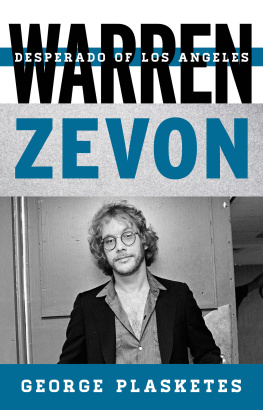
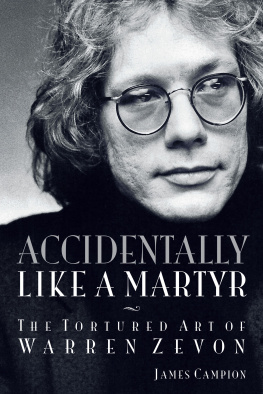

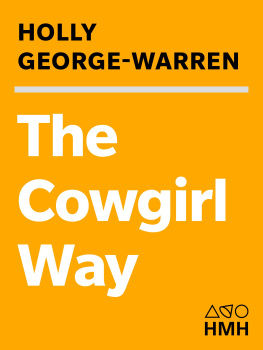
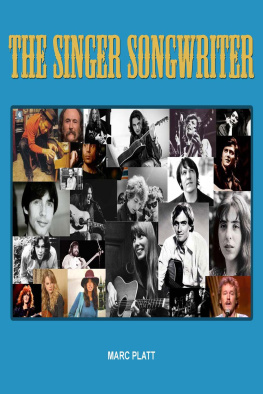

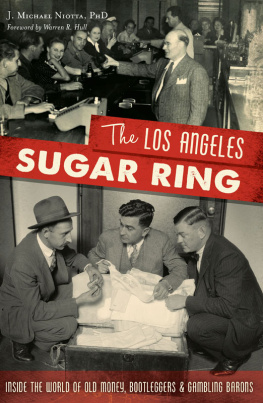
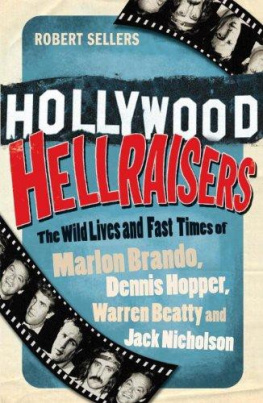
 TM The paper used in this publication meets the minimum requirements of American National Standard for Information Sciences Permanence of Paper for Printed Library Materials, ANSI/NISO Z39.48-1992.
TM The paper used in this publication meets the minimum requirements of American National Standard for Information Sciences Permanence of Paper for Printed Library Materials, ANSI/NISO Z39.48-1992.